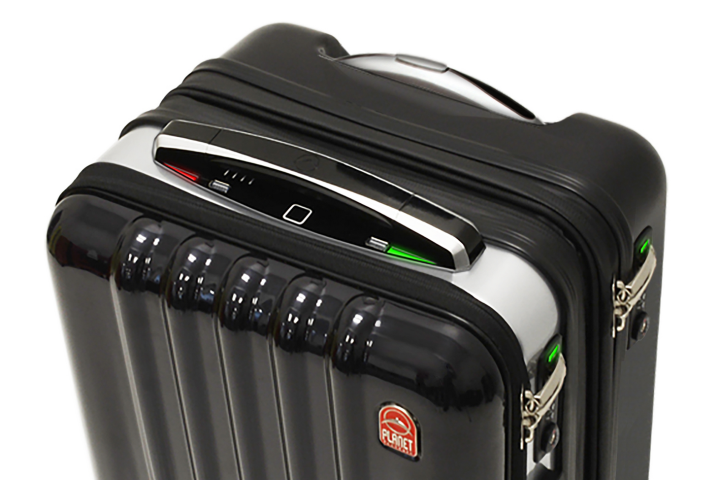
The Space Case 1, as it’s called, is equipped with a laundry list of high-tech features — including digital biometric locks, GPS, a digital lift-less weighing system, a power bank, Bluetooth, speakerphone, motion sensors, and anti-theft alerts. It even comes with a personal assistant that works through your smartphone. The suitcase of the future has arrived.
Planet Traveler has launched a Kickstarter campaign for the Space Case, and based on the overwhelming response from the crowdfunding community, it seems to be a really in-demand gadget. The company’s initial funding goal was $50,000 and it’s already raised over $540,000 with eight days remaining.
Here’s how the Space Case 1 works. To open it up, you’ll first need to run your finger over the biometric scanner or use your accompanying smartphone app to scan your prints. Next, just pack up your case. But don’t go overboard and get stuck paying those overweight luggage fees. Planet Traveler implemented a Digital Self Scale into the Space Case –with integrated sensors right in the wheels– that weighs your suitcase without even placing it on actual scale. Just fire up the accompanying
If you’re delayed at the airport and need a charge, the suitcase is equipped with two external USB charging ports and a rechargeable 15,000 mAh battery. Planet Traveler even set you up for less waiting around at the luggage carousel, wondering which suitcase is really yours. The mobile app will send out an alert when your luggage is on the carousel, and even if someone else tries to get away with it. Sounds simple enough, right?
If you want to order the Space Case 1 on Kickstarter you’ll cough up anywhere from $330 for a simple carry-on to up to $1,100 for a full four-piece customized set that includes two carry-ons and two full-sized suitcases. It’s a bit on the spendy side for sure, but hey, if you’re keen on revolutionizing your travel routine with some super-cool technology, then the Space Case 1 might be worth looking in to.


